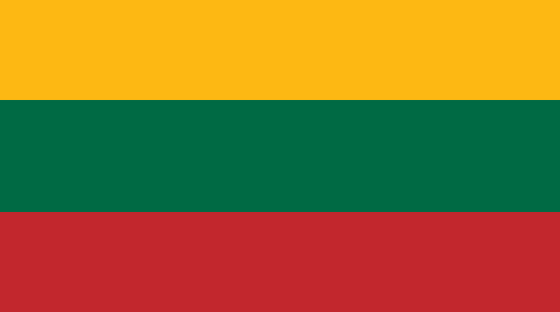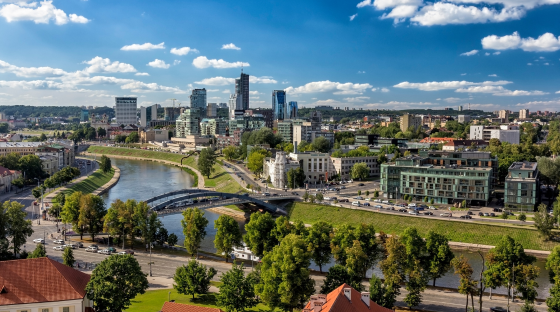-
Services
-
Software Project Delivery
-
Services
-
Solutions
-
Technologies
-
-
Network
-
Discover
-
Regions
-
Industries
-
Must-Read Guide
-
2026 Global Software Outsourcing Rates and Trends GuideDiscover why rates are just one aspect of the Accelerance Global Software Outsourcing Rates & Trends Guide, which offers valuable insights into the software development landscape.
-
-
-
Resources
-
Our Resources
-
Newest White paper
-
Aviation Ecosystem Modernization: A Holistic Approach for Meaningful TransformationModernize aviation by integrating people, processes, technology, and data
-
-
New eBook
-
 The True Cost of Software DevelopmentHidden costs can wreck your budget. Our new eBook breaks down the true cost of outsourcing—get your copy to stay ahead.
The True Cost of Software DevelopmentHidden costs can wreck your budget. Our new eBook breaks down the true cost of outsourcing—get your copy to stay ahead.
-
-
Featured White paper
-
Flow & Process OptimizationIn this white paper, you'll learn to streamline workflows, improve change management, and accelerate results.
-
-
-
About
-
About Accelerance
-
Our History
-
Accelerance: Our HistoryThere's great talent everywhere and great teams everywhere, which is the basis of the Accelerance model.
-
-
Software Without Borders
-
New Episode Every Week!Tune into our podcast Software Without Borders, the essential listen for technology leaders and business owners in the software sector who crave insights from the industry’s top minds.
-
-
Andy's Book
-
Synergea: A Blueprint for Building Effective, Globally Distributed Teams in the New Era of Software DevelopmentPeople are first and locations are secondary when it comes to software development success.
-
-
- Client Reviews
Lithuania

Overview
Lithuania is at the very heart of Europe. According to the National Geographic Institute of France, the exact geographic midpoint of the continent is the village of Purnuškės, just north of the Lithuanian capital Vilnius. The largest economy of the three Baltic states, the country has a high standard of living and is recognized for its ease of doing business and economic freedom. A streamlined Startup Visa is available to non-EU entrepreneurs and the capital Vilnius has become a fintech hub.
Led by Lithuania, the Baltics is experiencing its strongest economic growth since early 2022. Unemployment across the region remains near historical lows, although it is now trending upwards, in part due to positive net migration, including refugees from Ukraine. A shortage of skilled labor remains a brake on wider economic growth.
A member of Nato, the European Union and the eurozone, Lithuania ranked 19th in the 2024 World Happiness Report, measured on variables including GDP per capita, social support, freedom to make life choices and perceptions of corruption. Highlights for travelers include the winding cobblestone streets and picturesque churches of the medieval Old Town of Vilinius, and curious quirks such as museums dedicated to devils, basketball (the national sport), clocks, and cats.
The Accelerance Global Network is the most curated list of high-quality global teams ever assembled.
12hrs
Time Travel (From NY)
Average flight time from NY to the major cities in the country.
54
Partner Innovation capability
The score reflects investment in STEM progrms and IT funding by country.
42
Partner Skill Level
Level of workforce skills and quality of education, including factors such as digital literacy, interpersonal skills, etc.
47
Partner Global Competitiveness
National productivity based on 12 core pillars, including government policy, infrastructure, economic stability, etc.
Low
Software Outsourcing Readiness
Overall rating, based on the maturity of the tech sector, socio-political conditions, and on-the-ground research by Accelerance.

Talent Pool & Education
Tech companies in Lithuania have received substantial investment over the past few years, stimulating growth and development in the sector. Around 70,000 IT specialists are employed in the industry, which is growing by an average of 13% every year.
According to Invest Lithuania, 58% of the population aged 25 to 34 has tertiary qualifications. Rated top in the world for digital skills in the IMD World Competitiveness Yearbook 2023, the country has the highest share of women scientists and engineers in the European Union. Since 2016, Women Go Tech Lithuania has encouraged a transition into tech careers through its mentorship and community support model. A government-supported initiative also aims to boost the Lithuanian labor force with 20,000 high-value specialists in IT, engineering, life sciences, automation, and business process digitization.
The country has more than 90 IT outsourcing and software development companies servicing industries such as financial and business services, information technology, e-commerce, healthcare, and consumer goods. With a focus on cutting-edge technologies like AI and machine learning, Lithuania is home to leading cybersecurity firms, including Digital.ai, Cujo AI and home-grown unicorn Nord Security.
Language
The official language is Lithuanian, one of the oldest languages that still exist today. While Russian is more widely spoken among older people, the vast majority of young people prefer English as their first foreign language, with as many as 80% of young Lithuanians professing proficiency. English is also widely spoken in professional and business circles.

Economic Outlook
Lithuania exited the pandemic shock with little visible scarring, with GDP returning to the pre-pandemic trend by the end of 2021. Despite this, income per capita has stagnated over the past two years. Finance Minister Gintare Skaiste has predicted a return to “the path of growth” in 2024 and a faster than projected fall in inflation to below 2%. However, this is set against a backdrop of high external volatility and economic uncertainty, geopolitical tensions, and tighter monetary policy.
After a short and shallow recession, activity started to recover in late 2023 and debt-to-GDP has continued a downward trend. An International Monetary Fund report projects the economy to recover at a robust pace, supported by domestic and foreign demand. Low unemployment is continuing to put upward pressure on wages; in the first quarter of 2024, the average wage increased by 10.3%.
Lithuania has a much larger manufacturing sector than the other Baltic countries and its dairy products, especially cheese, are popular commodities offshore. In 2022, Lithuania announced it would no longer import Russian gas to meet its domestic needs, becoming the first country in Europe to secure its independence from Russian supplies.
Political Conditions
Lithuania’s President Gitanas Nausėda won re-election to a second term in the May 2024 election with 75% of the vote – the largest margin of victory for any presidential candidate in the country’s history. A former economist and banker, Nausėda ran as an independent and is viewed as economically liberal but socially conservative.
Both Nausėda and his main challenger, the current Prime Minister Ingrida Šimonytė, are in favor of increasing defense spending to at least 3% of GDP and support the need to increase military support for the defense of Ukraine. Nausėda has described Lithuania’s independence and freedom as “ like a fragile boat that we must cherish, protect and prevent from cracking.” During his time in office, Lithuania has also given refuge to many who have fled an authoritarian crackdown in neighboring Belarus and increased repression in Russia.
The current government is a center-right coalition led by Šimonytė’s Homeland Union. All parties maintain a pro-Western, pro-business outlook and relations with China are expected to remain volatile as the government pursues its "values-based" foreign policy. The next parliamentary elections are scheduled for October 2024.
Learn more about our customer stories.
Looking for a customer story in a specific technology or industry? Discover compelling customer narratives within a specific technology or industry that resonate with your unique software development needs.
